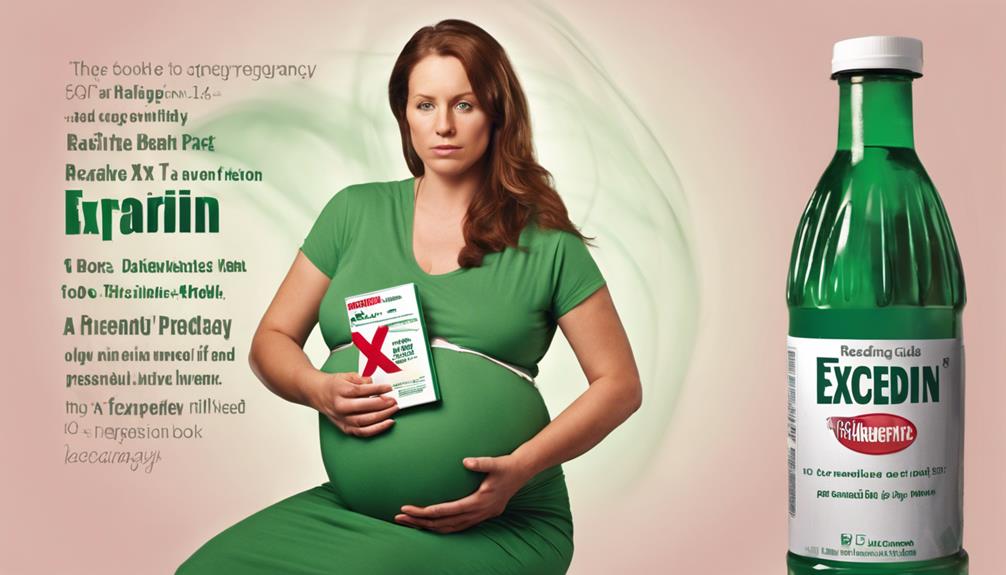Experiencing intense dental pain in the early stages of pregnancy can be difficult for some women who may not be aware of the different options for relief. Dealing with this type of discomfort during a crucial time can be overwhelming, but there are effective solutions available to help alleviate the pain.
From simple home remedies to professional guidance, handling tooth pain while pregnant requires a thoughtful approach that balances immediate relief and long-term oral health. While the journey may seem intimidating, understanding these ten ways can be the key to finding comfort during this challenging period.
Key Takeaways
- Saltwater gargle rinses and clove oil naturally relieve tooth pain during pregnancy.
- Avoid sugary foods, increase calcium intake, and maintain good oral hygiene to manage tooth pain.
- Consult a healthcare provider before using garlic for pain relief during pregnancy.
- Regular dental check-ups and professional help are crucial for effectively managing tooth pain in the first trimester.
Home Remedies for Tooth Pain
When experiencing tooth pain during the first trimester of pregnancy, there are effective home remedies that can provide relief and comfort.
Saltwater gargle rinses can be a soothing way to reduce inflammation and pain in the gums, offering a natural and essential solution.
With its natural numbing properties, Clove oil can offer temporary relief from toothache, making it a safe option during this important time.
Using a soft-bristled toothbrush and practicing gentle brushing techniques can help manage tooth pain without exacerbating any discomfort, ensuring that oral hygiene remains a priority.
Additionally, applying a cold compress to the outside of the cheek can help alleviate swelling and numb the affected area, bringing much-needed relief.
These natural remedies provide relief from tooth pain and promote oral hygiene, which is critical during pregnancy.
Taking care of your oral health with these simple yet effective methods can make a significant difference in managing tooth pain during the first trimester.
Proper Oral Hygiene Practices

Maintaining proper oral hygiene practices is important for ensuring your and your baby’s health during the first trimester of pregnancy. Brushing your teeth twice a day with a soft-bristled toothbrush can help prevent plaque buildup and maintain oral hygiene, reducing the risk of experiencing tooth pain.
Don’t forget to floss daily to remove food particles and bacteria between your teeth, which can also decrease tooth pain during this sensitive time. Using a fluoride toothpaste recommended by your dentist strengthens enamel, guarding against decay that often leads to tooth pain.
Additionally, rinsing with an alcohol-free mouthwash approved by your healthcare provider can reduce harmful bacteria, promoting a healthy mouth environment. Remember, regular dental check-ups and cleanings are important for early detection of any issues, ensuring your oral health remains at its best throughout your first trimester.
Taking these simple steps can make a significant difference in preventing tooth pain and maintaining a healthy smile during pregnancy.
Use of Saltwater Gargle
When experiencing tooth pain in early pregnancy, using a saltwater gargle can be a simple yet effective way to find relief.
The saltwater solution helps reduce inflammation and kill harmful bacteria in the mouth, offering a natural remedy that’s safe for expectant mothers.
It’s important to gargle with warm saltwater multiple times a day to soothe sore gums, promote oral healing, and maintain good dental hygiene during this sensitive period.
Benefits of Saltwater
Using saltwater as a gargle can effectively alleviate tooth pain and promote oral health during the first trimester of pregnancy. Saltwater gargle helps reduce inflammation, kill bacteria, and relieve tooth pain. It soothes sore gums, lowers infection risk, and maintains oral health. This natural remedy is safe for regular use, cleansing the mouth, preventing plaque buildup, and fostering a healthy oral environment.
Additionally, it’s a cost-effective and easily accessible solution for managing unbearable tooth pain while pregnant. Try incorporating saltwater gargling into your daily routine to experience these benefits firsthand.
| Benefits of Saltwater Gargle | ||
|---|---|---|
| Reduces inflammation | Kills bacteria | Provides relief from pain |
| Soothes sore gums | Lowers infection risk | Maintains oral health |
How to Gargle
If you’re looking to ease tooth pain and promote oral health during your first pregnancy trimester, mastering saltwater gargling can be a game-changer.
Gargling with salt water is a simple yet effective way to reduce inflammation, eliminate bacteria, soothe sore gums, and relieve tooth pain temporarily.
To prepare the solution, just mix 1 teaspoon of salt in a glass of warm water until it dissolves. Then, take a small sip, tilt your head back, and gargle the solution in your mouth for about 30 seconds before spitting it out.
Regular saltwater gargles can’t only help manage tooth pain but also contribute to maintaining good oral hygiene during this critical time.
Frequency of Use
For perfect relief and oral health benefits, incorporating saltwater gargling multiple times a day can be a safe and effective practice during the first trimester of pregnancy.
Gargling with a saltwater rinse helps reduce inflammation and kills bacteria in the mouth, promoting overall oral hygiene.
Gargling with saltwater after meals is recommended to maintain a clean and healthy mouth environment.
Pregnant women experiencing tooth pain can find temporary relief by using a saltwater rinse regularly.
Integrating this simple yet powerful practice into your daily routine allows you to manage tooth pain and sensitivity more effectively during this sensitive period.
Embrace the soothing properties of saltwater gargling to alleviate discomfort and promote oral wellness.
Benefits of Garlic for Pain Relief

Garlic offers natural pain relief for toothaches due to its antibacterial properties. Chewing on a clove or using garlic paste can help reduce inflammation and provide temporary relief.
It’s a centuries-old remedy known for its analgesic and antimicrobial benefits, offering a safe option during pregnancy.
Garlic’s Pain-Relieving Properties
Amidst the discomfort of tooth pain during the first trimester of pregnancy, exploring the pain-relieving properties of garlic can offer a natural and soothing remedy.
Garlic contains allicin, an active compound known for its anti-inflammatory and analgesic effects, making it effective in alleviating tooth pain. Chewing on a clove of garlic can release allicin, which helps reduce pain and inflammation in the affected tooth area.
Additionally, applying crushed garlic or garlic oil directly to the painful tooth can temporarily numb the area, providing relief from discomfort. The antimicrobial properties of garlic also aid in fighting oral bacteria, potentially lowering the risk of infection and further complications.
While garlic offers temporary pain relief, it’s important to seek advice from a healthcare provider or dentist for proper diagnosis and long-term management of tooth pain during pregnancy.
Ways to Use Garlic
Exploring different ways to incorporate garlic into your routine can provide natural and beneficial relief for tooth pain during pregnancy.
Garlic, with its anti-inflammatory and antibacterial properties, is a powerhouse for alleviating toothaches. Chewing on a clove of raw garlic or applying garlic paste directly onto the affected tooth can offer temporary relief by reducing inflammation and combating oral bacteria.
The analgesic properties found in garlic make it a safe and effective natural remedy to manage tooth pain without any harmful side effects. Whether incorporated into your diet or used topically, garlic can be a soothing option for easing the discomfort of toothaches during pregnancy.
Precautions and Considerations
Considering the potential benefits of garlic for pain relief, it is important for pregnant individuals to be mindful of certain precautions and considerations when using this natural remedy to manage tooth pain during the first trimester. While garlic can provide relief due to its antibacterial and analgesic properties, it’s essential to approach its use with caution during pregnancy. Here are some key points to keep in mind:
| Precautions | Considerations |
|---|---|
| Consult a healthcare provider before use | Use garlic in moderation |
| Avoid applying garlic directly to the gums | Monitor for any adverse reactions |
| Ensure garlic is fresh and properly cleaned | Discontinue use if any discomfort occurs |
Dietary Adjustments for Comfort

To guarantee comfort and alleviate tooth pain during the first trimester of pregnancy, it’s essential to make dietary adjustments that prioritize oral health and overall well-being. When experiencing tooth pain while pregnant, focusing on a tooth-friendly diet can make a significant difference.
Increase your intake of calcium-rich foods such as dairy products, leafy greens, and almonds to support dental health and combat sensitivity. Avoiding sugary and acidic foods is important as they can worsen tooth pain and lead to dental issues.
Incorporating Vitamin C sources like citrus fruits and bell peppers can boost gum health, reducing inflammation and discomfort. Opt for lean proteins like chicken, fish, and legumes to provide essential nutrients for overall oral health.
Additionally, staying hydrated by drinking plenty of water helps maintain saliva production, combating dry mouth which can exacerbate tooth pain. By making these dietary adjustments, you can promote oral health and find relief from pregnancy-related tooth sensitivity.
Understanding Pregnancy-Related Tooth Pain

During pregnancy, hormonal changes can increase the risk of gum inflammation and sensitivity, leading to pregnancy-related tooth pain in the first trimester. Pregnant women may experience discomfort due to increased blood flow to the gums, causing swelling and tenderness in the teeth and gums.
It’s important to understand that changes in diet and oral hygiene habits can also play a role in tooth pain during this time. Pregnancy gingivitis, affecting a significant percentage of pregnant women, can further contribute to periodontal issues and worsen tooth pain. Maintaining good oral hygiene practices becomes important in alleviating these symptoms.
As your body undergoes these hormonal fluctuations, it’s crucial to be gentle with yourself and prioritize your dental care. By being aware of these factors and taking proactive steps to care for your oral health, you can effectively manage pregnancy-related tooth pain during the first trimester.
Dealing With Pregnancy Gingivitis

Experiencing pregnancy gingivitis can be challenging, but with proper care and attention, it’s essential to make certain your oral health remains in good condition. Pregnancy gingivitis, affecting up to 75% of pregnant women, is primarily caused by hormonal changes and increased blood flow to the gums.
Symptoms such as red, swollen, and tender gums, along with bleeding while brushing or flossing, indicate its presence. If left untreated, pregnancy gingivitis can progress to periodontal disease, potentially leading to tooth loss and complications during pregnancy.
To combat this, maintaining good oral hygiene practices is vital. Regular brushing and flossing help prevent and manage pregnancy gingivitis effectively. However, seeking professional dental care is equally important. Dentists can provide the necessary treatment, monitor the condition closely, and prevent further oral health issues.
Importance of Seeking Professional Help

Seeking professional assistance for unbearable tooth pain during the first trimester of pregnancy is vital to guarantee proper diagnosis and effective treatment. Dental professionals possess the expertise to assess the root cause of the tooth pain and recommend safe treatment options tailored to your specific situation.
By reaching out to a dentist promptly, you not only address the immediate discomfort but also prevent potential complications that could arise from untreated dental issues during pregnancy. Professional dental care prioritizes your well-being and the safety of your baby, ensuring that any treatment provided is both effective and safe.
Consulting a dentist for unbearable tooth pain in the first trimester allows for personalized care that takes into account the unique considerations of pregnancy. Remember, reaching out for professional help is a proactive step towards managing your tooth pain and ensuring a healthy dental state throughout your pregnancy.
Over-the-Counter Pain Relief Options

If you’re dealing with unbearable tooth pain during your first trimester of pregnancy, exploring over-the-counter pain relief options can offer some temporary relief. Acetaminophen (Tylenol) is generally considered safe for managing tooth pain in the first trimester, but it’s essential to consult a healthcare provider before taking any medication.
Nonsteroidal anti-inflammatory drugs (NSAIDs) like ibuprofen should be avoided during the first trimester for toothache relief. Instead, topical numbing agents such as Orajel can provide some comfort. These options can help alleviate the discomfort while you wait to see a dental professional.
Ensuring Dental Care During Pregnancy

Ensuring proper dental care during pregnancy is important for maintaining oral health and managing tooth pain effectively. Visiting the dentist regularly, especially in the first trimester, can make a significant difference in your oral health journey. Here are some essential points to bear in mind:
- Regular Check-ups: Schedule routine dental check-ups and cleanings to bear in mind tooth pain and maintain good oral health during pregnancy.
- Tailored Treatments: Dentists can provide safe and specific interventions to address unbearable tooth pain in pregnant women.
- Early Intervention: Seeking dental care early on can help prevent dental issues from escalating, ensuring a more comfortable pregnancy experience.
Conclusion
As we navigate through the challenges of unbearable tooth pain in the first trimester of pregnancy, let’s remember that taking care of our oral health is vital for both ourselves and our little ones.
By combining home remedies with professional dental care, we can guarantee a healthy and comfortable pregnancy journey.
Just like a gentle wave soothing the shore, let’s prioritize our well-being and seek the support we need to sail through this beautiful chapter with ease.









